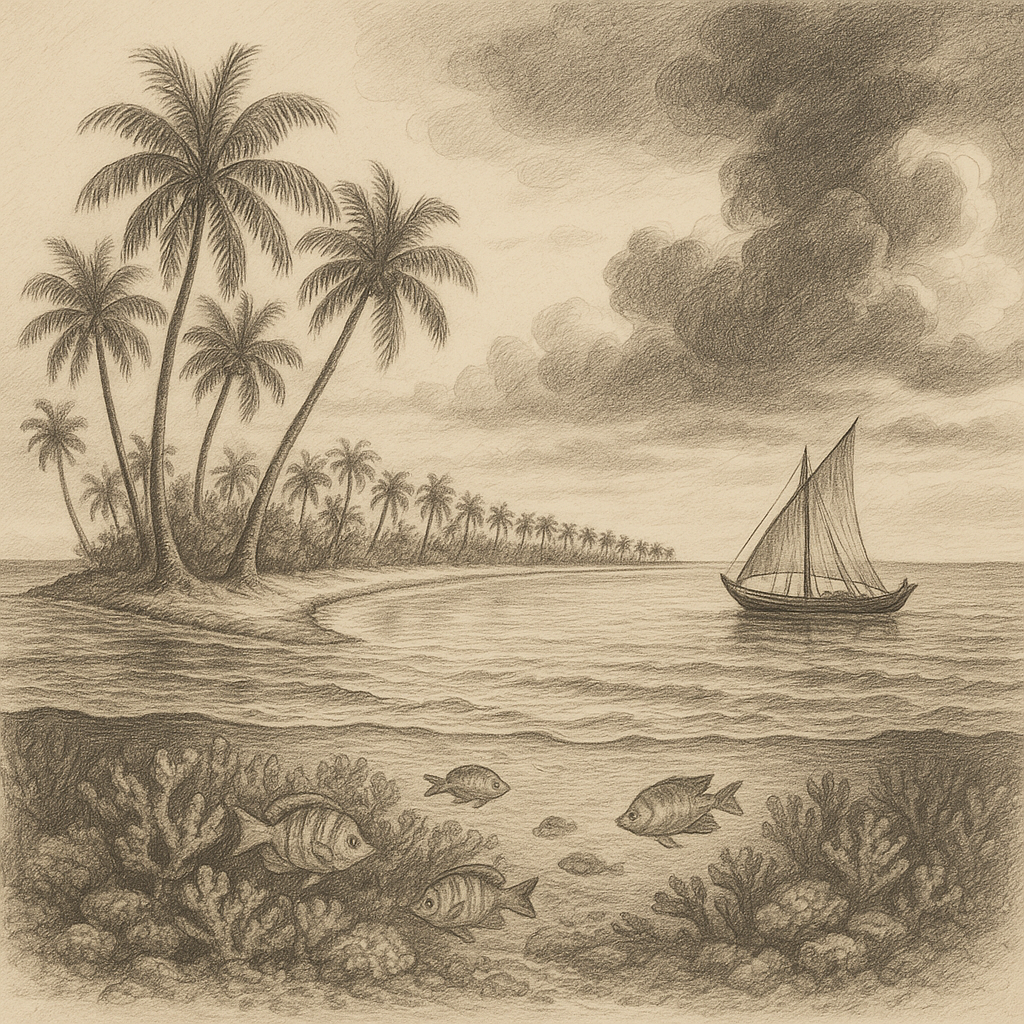Agatti Island: A Hidden Tropical Paradise in the Laccadive Sea
Agatti Island, a narrow stretch of white sand surrounded by aquamarine waters, is one of the gems of the Lakshadweep archipelago in the Arabian Sea. Known for its stunning coral reefs, vibrant marine life, and peaceful isolation, the island is a perfect escape for those seeking tranquility and natural beauty. Here’s a closer look at this remote destination.
Location and Geography
Agatti Island is part of Lakshadweep, the smallest Union Territory of India, and is located approximately 459 km (285 miles) west off the coast of Kochi in the state of Kerala. The island stretches over approximately 7.6 km in length and is less than a kilometer wide at its broadest point. Its flat terrain is fringed by palm-lined sandy beaches and protected by surrounding coral atolls, forming a shallow lagoon that supports a diverse marine ecosystem.
The island lies on a coral atoll and is surrounded by a barrier reef, making it not just one of the most scenic but also one of the ecologically important islands of the Indian Ocean. Its geographic isolation adds to both its vulnerability and enchantment, as it remains relatively untouched compared to mainstream beach destinations.
Climate and Biodiversity
Agatti Island features a tropical monsoon climate, characterized by stable temperatures ranging from 25°C to 32°C throughout the year. The region experiences two main seasons—dry and monsoon—with the monsoon lasting from late May to September. Annual rainfall averages around 1,600 mm, supporting both lush vegetation on the island and rich sea life in surrounding waters.
The island is home to a variety of plant species, predominantly coconut palms and tropical shrubbery. Agatti’s marine biodiversity is particularly remarkable, with thriving coral reefs hosting over 250 species of fish, multiple varieties of coral, sea turtles, and even the occasional dolphin. It is a designated area for marine conservation, involving both government initiatives and community support.
Access and Transportation
Despite its remote location, Agatti is one of the few islands in Lakshadweep with an airport, making it relatively more accessible. The Agatti Aerodrome is connected by limited flights to Kochi, Kerala, operated by regional carriers. From Kochi, it takes roughly 90 minutes by air to reach the island.
There are also ship services from the mainland, although they take 14 to 20 hours, depending on sea conditions and the vessel used. Entry to the island requires special permits for both Indian and foreign nationals, primarily due to ecological conservation regulations and limited infrastructure.
Culture and Local Life
The inhabitants of Agatti Island, numbering around 7,500, are primarily of Muslim faith and speak Malayalam and Mahl, a dialect of Dhivehi. The culture is strongly influenced by centuries of seafaring traditions as well as a fusion of South Indian and Maldivian customs.
Fishing and coconut farming are the main economic activities on the island. Tourism is slowly emerging as an important source of income, albeit controlled so as not to disturb the ecological balance. The island has a laid-back pace of life, with friendly locals who rely heavily on sustainable practices.
Highlights and Attractions
Agatti boasts picturesque beaches, such as Palm Beach and Lagoon Beach, which are ideal for swimming, sunbathing, and relaxing in pristine surroundings. The shallow, warm waters around the island also make it a haven for water sports such as kayaking, snorkeling, scuba diving, and glass-bottom boat tours.
One of the island’s top attractions is its coral reef, where vibrant fish dart among branching and brain corals. Diving tours provide close-up views of reef sharks, stingrays, and other magnificent marine creatures. The Agatti Island Lighthouse, though not open to the public, is another visual highlight and assists ships in the region’s waters.
Interesting Facts About Agatti Island
– Agatti Island is the only island in Lakshadweep with an airstrip, making it the gateway for most visitors to the Union Territory.
– The surrounding lagoons are some of the most nutrient-rich in the Indian Ocean, offering a unique feeding ground for marine life.
– Solar power is becoming increasingly important on the island, with hybrid energy solutions being installed to reduce dependence on diesel-generated electricity.
– The Agatti Island coral reefs are part of the “Lakshadweep Coral Reef Complex,” recognized for its high diversity and resilience against climate change.
Legends and Local Lore
As with many island communities steeped in oral tradition, Agatti has its share of myths and legends. One of the most enduring is the tale of the “Sagar Putra” or “Son of the Sea,” a figure believed by locals to be a guardian spirit who watches over fishermen and warns them of impending storms.
Another popular legend speaks of a sunken city off the coast of Agatti, which some elders claim existed before being swallowed by the sea in ancient times. Dives in the surrounding areas have uncovered unusual rock formations and coral-covered structures that fuel speculation, although no definitive evidence has been found.
The islanders also celebrate “Maulood,” a traditional event that includes the singing of religious hymns and stories of sea miracles, believed to bless the boats and ensure a bountiful catch for the year.
Preservation and Sustainability Efforts
Because of its ecological sensitivity and small landmass, Agatti Island faces several challenges, including erosion, plastic pollution, and pressures from increasing tourism. Programs led by the Lakshadweep administration, such as coral rejuvenation and waste management, are active on the island. Traditional fishing methods and community education programs also play key roles.
In line with its cultural heritage and environmental needs, Agatti is a model for eco-tourism in India. Visitor numbers are limited, and accommodations are simple, mostly small guesthouses and eco-resorts that prioritize sustainability.
Conclusion
Agatti Island is more than just a beautiful destination—it is a living harmony between human life and nature. From its rich marine ecosystems and captivating legends to its tranquil beaches and tight-knit community, Agatti offers an experience as unique as it is remote. In an age where untouched locales are rare, Agatti stands as a reminder of how precious and fragile our planet’s hidden treasures truly are.



